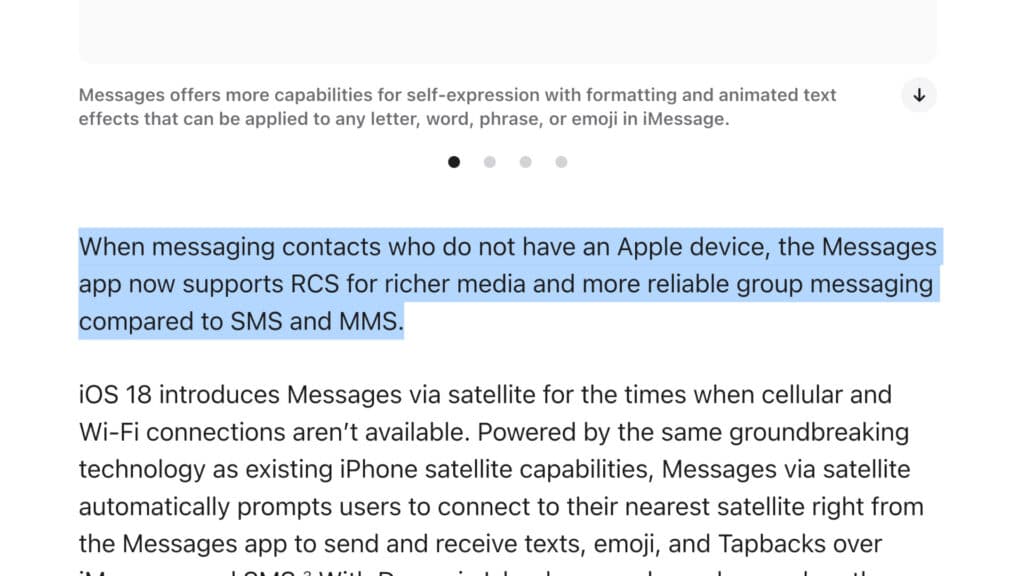Will RCS on iPhone end green bubbles?! No, but it’s still very cool.
Apple has finally added support for Rich Communication Services (RCS) to the iPhone via the latest iOS 18 beta. The messaging protocol will allow iPhone and Android users to enjoy a better overall experience when messaging each other.
While the blue vs. green bubble war is not over, many of the frustrations associated with it will soon be a thing of the past.
One small sentence for Apple, one giant leap for texters
Although arguably one of the most significant announcements at the most recent WWDC, the addition of RCS to iPhones was only given a single sentence in Apple's press release. All they bother to mention is that users can enjoy "richer media and more reliable group messaging" with "contacts who do not have an Apple device," also known as over 72% of the world as of June 2024.
Of course, there is much more to RCS than what Apple shares on its website. Features that are now present between iPhone and Android users include:
- Sending and receiving high-quality images and videos
- The ability to create, rename, and even leave group chats
- Typing indicators when a person is composing a message
- Read receipts when your message has been seen
- A full array of emoji to react to messages with
These features are all fantastic and long overdue. However, a couple of notable things will not change with the addition of RCS to iPhones.
Two issues still remain with RCS
Firstly, the green bubbles iPhone users see when messaging an Android user will still exist. While this may seem stupid to non-Americans, the divide within the US is real and a genuine Apple marketing tactic.
This MKBHD video thoroughly explains the history of the colored bubbles and their effects on the US population. Regardless, the visual marker of a non-Apple device user will not go away despite the presence of most previously absent key chat features.
The second unchanging item with iPhone's adoption of RCS is a legitimate cause for concern. End-to-end encryption (E2EE) will not be present between iPhones and Androids.
Both Apple and Google feature it between their own devices, the RCS Universal Profile does not yet have an E2EE standard. But fear not, Apple has already called for a new industry standard and Google will likely move to whatever is settled upon.
How to enable RCS on iPhone
Those who want to experience RCS on their iPhone ahead of iOS 18's full launch can do so by downloading the latest beta. It's completely free and only requires a few simple steps.
- Create a free developer account.
- Visit developer.apple.com and click Account. Then create a free developer account using your Apple ID (if you have ever registered, skip this step). Next, agree to any terms.
- Check for software updates on your iPhone.
- Open your Settings app > Select General > Tap on Software Update > Tap Beta Updates > Select the iOS 18 Beta. Then hit Back and the version will appear.
- Download and install the beta.
- Tap Update Now and enter your passcode. After downloading, choose Install Now and type the device passcode again.
RCS should then be enabled by default. You can easily check by navigating to Settings > Apps > Messages and making sure it's on.
Following the steps above should grant access to RCS for all iPhone users on AT&T, T-Mobile, and Verizon. Those on smaller regional carriers and MVNOs such as, ironically, Google Fi.
We can assume that Google will work to fix this as quickly as possible, though. It'd be pretty embarrassing for a feature they pressured Apple for with an entire ad campaign to not work on their own network.
Stay tuned to esports.gg for the latest tech news and updates.
